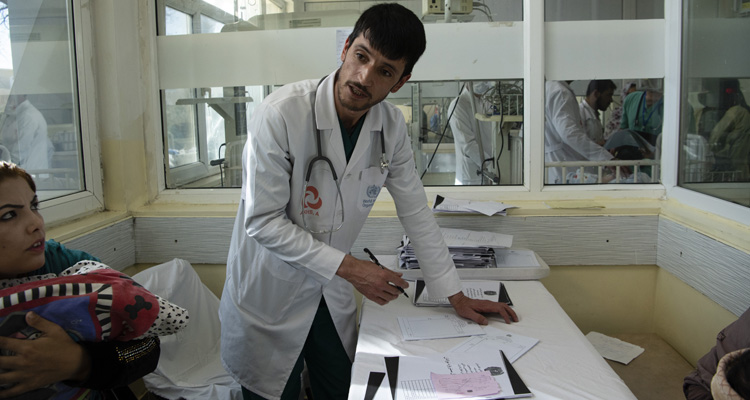 Photo credit: WHO/Kiana Hayeri
Photo credit: WHO/Kiana Hayeri
The health workforce is a key pillar of any health system. Every health system critically depends on the availability of competent, motivated and well-supported health workers. The COVID-19 pandemic has only highlighted the urgent need to invest in an agile and responsive health workforce.
Health workforce is a term that covers all people engaged in work that aims chiefly to improve health. This includes doctors, nurses, midwives, public health professionals, laboratory technicians, health technicians, medical and non-medical technicians, personal care workers, community health workers, healers and traditional medicine practitioners.

The term also includes health management and support workers such as hospital administrators, health managers and social workers, and other occupational groups in health-related activities.
Major health workforce challenges affect the Eastern Mediterranean Region. Health worker shortages have long been an issue in the Region, especially in countries and territories affected by protracted conflict and other crises.
Six of the Region’s countries are on the WHO health workforce support and safeguards list 2023. Countries on this list face the most pressing health workforce challenges related to universal health coverage.
Main health workforce challenges in the Region include:
overall and specific shortages
inadequate workforce production and employment capacities
imbalances in workforce distribution and skill mix
inadequate working conditions and environment
low productivity
limited governance and regulation capacities
insufficient health workforce information and evidence
the safety, security and well-being of health workers.
Increased international mobility of health workers, due to economic reasons and the protracted crises in the Region, further complicates the situation. The impact of the COVID-19 pandemic has only heightened these challenges and exposed the chronic underinvestment in the health workforce.




